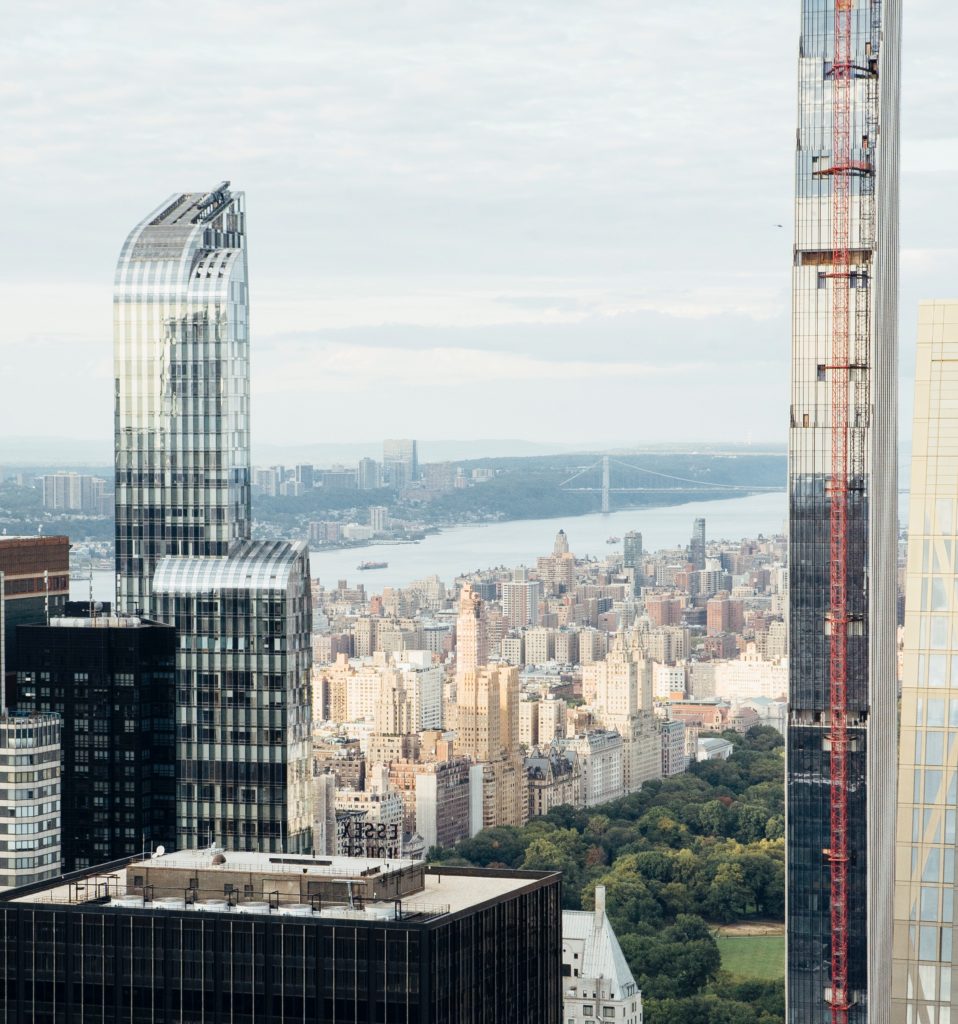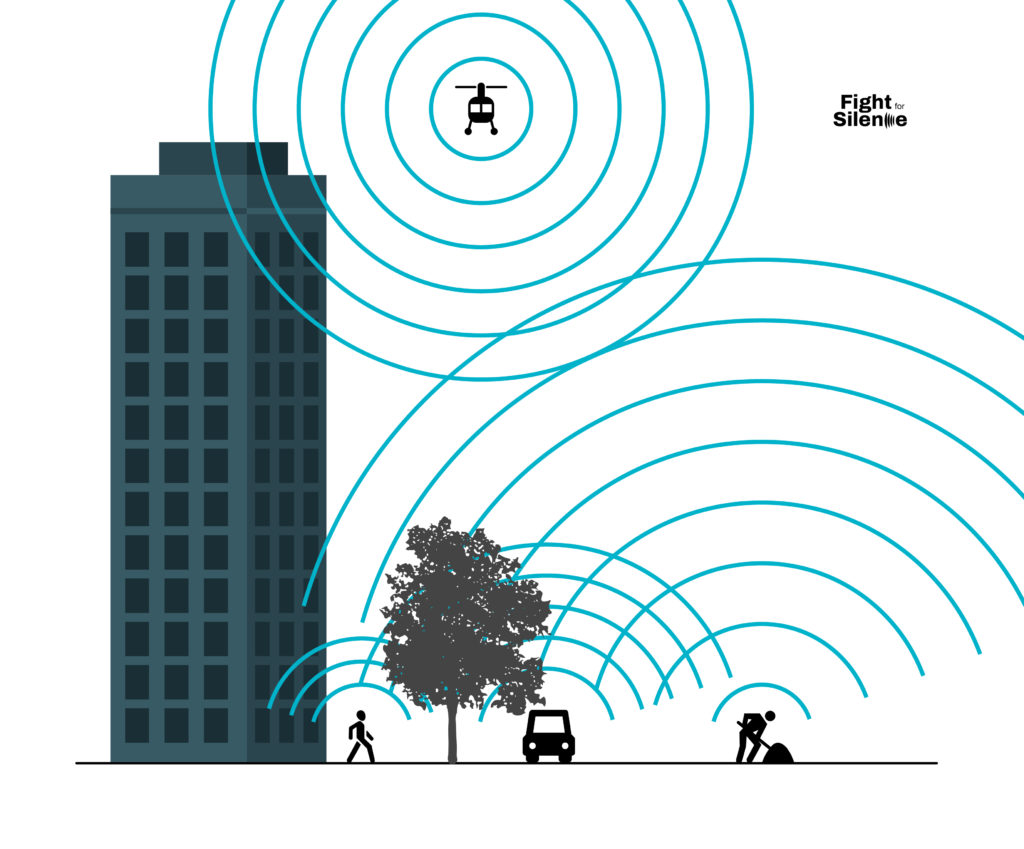
Are Higher Floors Quieter? Understanding the Truth About City Noise
Living in a city can be great, but it also comes with its own set of challenges – like dealing with city noise.
If you find yourself walking through the streets of a city with very high buildings, a question that you might have asked yourself at some point is: How would it be to live on one of those top floors? Would it be any quieter than the lower floors?
When I first moved to New York I was living in a studio apartment on 34th and 2nd, on the 8th floor. I then moved to west-mid-town to the 16th floor. Then back to the east side to the 59th floor, and finally down to the East Village on the first floor.
My experience is that lower floors get fewer but louder noises, while the top floors get more numerous but softer ones. In my experience, the middle floors (I would consider the 16th floor around the middle for NY) turned out to be the worst in terms of noise.
As it turns out, there is some logic to justify my experience. Living on a higher floor does not necessarily mean less noise. While it’s true that some noises will diminish as you go up, others might actually increase in volume. So if you’re looking for a quieter apartment, going higher will not necessarily be the solution you are looking for.
In this article, we’ll take a look at the different types of city noises and how they are affected by height.
Main sources of noise in the city
In order to better understand why higher apartments aren’t always necessarily quieter, we first need to take a look at the main sources of noise in our cities, which include people talking and walking on the street, to traffic, ambulance and fire trucks sirens, construction work, trucks loading and unloading, and even air traffic noise, such as the one produced by helicopters and airplanes.

Of these, traffic noise is probably the most constant city sound you’ll hear. And unfortunately, it’s also one of the hardest to escape. If you live on a busy street, chances are you’ll be able to hear the cars passing by no matter how high up you are.
Construction noise is another city sound that can be difficult to avoid. If there’s a construction site nearby, you’ll probably be able to hear the machinery working even if you’re not right next to it. And because higher floors are less sheltered by other buildings, it is not rare for apartments on these higher floors to actually pick up noise from construction works that are further away. The lower floors on the other hand are more exposed to nearby construction, but less so to construction sites located further away.
Ambulance, police and fire truck sirens are another city noise that can be hard to escape. These sounds are designed to be loud so that they can be heard above the city din. And while they might not be as constant as traffic or construction noise, they can still be very jarring when you hear them.
People talking and walking on the street is a city noise that is often underestimated. If you live on a busy street, especially one with bars and restaurants, chances are you’ll be able to hear people talking and laughing distinctively up to the 10th floor.
And let’s not forget air traffic. If you live in a neighborhood near an airport airplane noise can become a real problem. And if you live as far away from an airport as downtown, then it’s the helicopters that become the issue.
Simply put, city noise is complex. And while living in a higher floor might help you escape some noises, it will not necessarily make your apartment quiet. If you’re looking for a quiet apartment, looking for a naturally quieter neighborhood will probably be a lot more effective than looking for an apartment located on a higher floor.
The lowest floors
The apartments located on the lower floors are usually more exposed to noise coming from street activity, such as people walking by, trucks loading or unloading, or even music from retail stores if you live on a commercial street.
On the other hand, lower-floor apartments are not as exposed to construction noise, unless the construction is happening right in front of your building. And the same thing goes for sirens. You’ll hear the sirens of an ambulance passing through your street very loudly, but you might not even realize if a fire truck passes just one street away, as you’ll have all the buildings in your block literally acting as a barrier between you and the source of the sound.
Above the 10th floor
Above the 10th floor you’ll start noticing that street-level activity such as people talking on the sidewalks becomes less of an issue.
If your street has trees, you will also start noticing some benefits from these trees acting as a buffer between you and the sources of sound. Which floors are more “protected” from sound by trees is hard to tell, as it also depends on the type of trees and their height. However, many of the trees planted in cities will lose their leaves during the winter, so they will actually only help your fight for silence for a few months a year during the summer.
This doesn’t mean you’ll live a quiet life above the 10th floor, but it does mean that, if you have good windows, you’ll be able to block a lot of noises with the windows closed.
Above the 30th floor
The most luxurious apartments are usually located on the top floors of the building, and there’s a reason for that, other than the views.
Because the distance to the street is larger, the volume of any sound produced at street level will have diminished by the time it reaches the 30th floor or above. But don’t expect complete silence! Noises will not disappear, but they will be softer.
However, living on a top floor also means you’ll probably pick up sounds produced at a much further distance. The volume might not be super high, but you’ll still hear it, because there is nothing in the way to block the sound waves. From a top-floor apartment in New York City you might even pick up sounds coming from Queens or New Jersey, which are miles away.
Another downside of top floors when it comes to noise pollution is air traffic. In some cities, helicopter traffic can be a real issue. Helicopters can be incredibly loud, producing over 100 dB at a 100ft distance. If you live in a city with heavy helicopter traffic such as New York or LA you might find that car noise is not an issue on the top floor of a high-rise building, but that helicopter noise is actually much worse.
So be careful what you wish for!
Other considerations
Height by itself can also be a tricky measurement. When trying to measure sound levels context is always important. Sound waves are reflected differently by different materials. They bounce from one surface to another, they mix amongst other sound waves, etc.
For example, an apartment on the 25th floor of a building in a neighborhood where all other buildings are 10 floors will be much quieter than if that same building was surrounded by 25+ floors buildings.
In the first scenario, sound waves will travel up from the street, bounding around building facades until reaching the 10th floor. At that point they will start to dissipate.
In the second scenario, sound waves will still be bounding around when they reach the 25th floor, and therefore will still be perceived as louder sounds.
Conclusion
When we see super tall buildings we sometimes tend to imagine that living on one of those top floors must be like living in the clouds, isolated from what’s going on on the street and the noises that comes with all the city activity. However, that is not the case at all. City noise is still city noise, no matter how high up you go. Sure, the volume of some sounds might be lower, but you will also pick up new sources of noise you never thought about while living in a lower floor, such as far away construction sites or helicopters.
So, if you live in a busy city and are considering moving because of the noise, try looking for a quieter street in a quieter neighborhood. Going up will rarely be the solution.

[…] Even those living in luxury high-rises in bustling cities like New York can experience the harmful e…. However, when low-income neighborhoods or communities of color are disproportionately affected, noise pollution becomes a social justice issue that worsens existing health disparities, limits economic opportunities, and reduces overall quality of life. Therefore, it’s essential to address noise pollution as a social justice issue (environmental injustice) and ensure equal access to a healthy environment. […]
I am on floor 20 and the noise that drives me close to the edge are 24/7 noise from extractor fans, air con and other stuff on the roof of buildings lower down. I wonder if there is a way to deal with this?